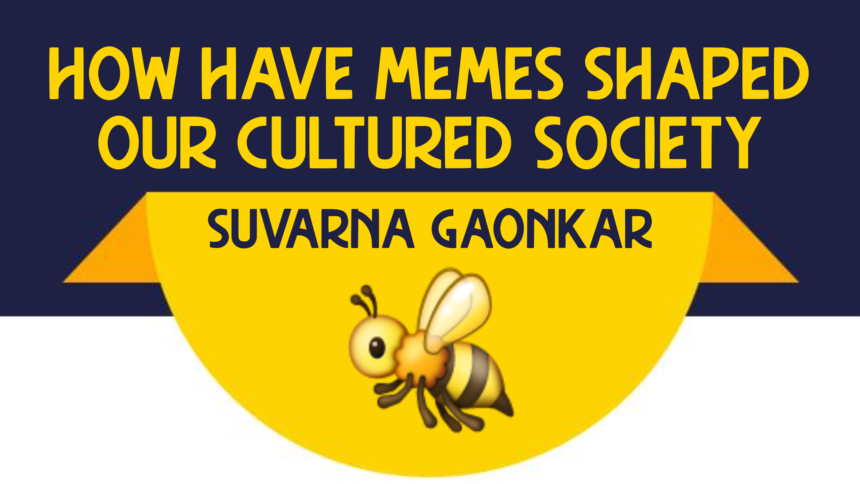Goa | 13 January | Suvarna Gaonkar
(goa news) Memes have become a pervasive part of modern life. An internet meme is a piece of content, often humorous, that is quickly replicated and shared across the internet. Memes possess extraordinary power to shape public opinion, transcend geographical and cultural boundaries, and act as a common language that unites people worldwide. They serve as a mirror reflecting the prevailing attitudes, concerns, and aspirations of generations and have undeniably left a lasting impact on the digital landscape.
Contents
(goa news) Understanding the influence of memes allows us to comprehend the dynamics of online culture and harness their potential for positive societal change. However, memes also have the potential to perpetuate harmful effects, such as spreading misinformation and enabling manipulation within society.
As cultural signifiers, memes often emerge in response to current events, popular culture, and social trends. They function as communication tools, political instruments, and community builders, holding a unique place in the digital age. On the flip side, memes can be exploited to promote cyberbullying, hate speech, offensive content, and discriminatory behavior, using humor as a mask to spread harm. Despite this duality, memes have undeniably become powerful cultural artifacts that shape our online interactions and understanding.
It is often said that memes can positively impact mental health by increasing individuals’ positive emotions and boosting confidence in dealing with life’s uncertainties. For instance, during the COVID-19 pandemic, research showed that people who viewed memes with positive captions related to the pandemic reported lower stress levels than those who viewed non-COVID-related captions. This demonstrates how memes, particularly those related to highly stressful contexts, can help individuals cope with stressors.
Check it out : Shah Sharif Dargah, the shrine of Chhatrapati Shivaji Maharaj’s ancestors
On the other hand, memes can be a source of misinformation and excessive consumption of memes may signal phone addiction, developing into a lifetime habit. Moreover, exposure to negative or misleading content on social media can carry over into real life, making it harder to manage emotions or maintain genuine relationships. Research suggests that constantly scrolling online often results in ignoring the emotions of people physically present with us, ultimately damaging personal relationships.
In conclusion, memes are a double-edged sword: they entertain, inspire, and foster global connections, but they can also propagate harmful ideas and undermine real-life interactions. To leverage the positive aspects of memes, it is essential to use them responsibly and critically analyze the content we consume.
Read This: History: The Indians: A Useful Reference Book for Scholars of South Asian History





